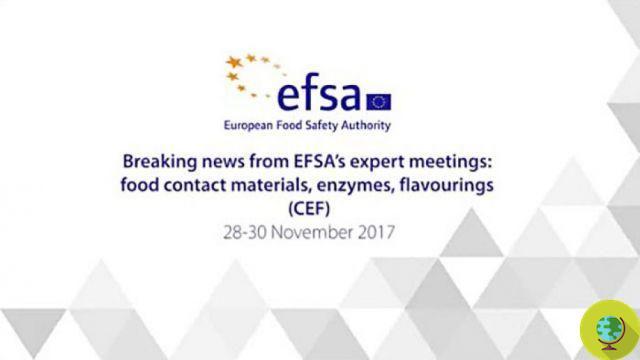
Bisphenol A and health risks. EFSA seems to have reached a good point in the process of assessing the risks for human health deriving from exposure to bisphenol A. It has in fact launched a consultation on the subject, after having completed a comparison with the scientific literature and with previous risk assessments made by competent bodies.
Don't store avocado like this: it's dangerous
What are the royals health risks of bisphenol A? THE'EFSA kicked off a public consultation on the risks associated with exposure to bisphenol A, also known as BPA. The European Food Safety Agency has decided to collect external opinions on the draft of its new document dedicated to this substance. Based on the data now available, EFSA has decided to reduce the safety threshold relating to exposure to bisphenol A.
The public consultation will now start, following years of studies and a long comparison work conducted on existing research. In this regard, both the scientific literature that the assessments already made by competent bodies. Thanks to online public consultation all interested parties will be able to comment on the draft document in question. There will be time until March 13 2014. The public consultation will serve to make EFSA's decisions more transparent and to allow for a broad comparison before confirming the validity of the final document.
Bisphenol A is a substance widely used in the production of plastic materials which will be used for the manufacture of bottles, cans and containers for the alimony. Even minimal contact of consumers with BPA is practically inevitable, as this substance is a real one endocrine disruptor, is able to migrate from the container to the content, which can consist of food or drink.
Europe had already intervened previously on the bisphenol A question, putting it at the gang from the production of baby bottles within the EU territory from from March 2011. This was an important step, which was not followed by as many measures relating to the ban on the use of the substance for the production of other types of food containers. Since 2012, EFSA has been involved in a reassessment of health risks linked to Bisphenol A at the request of European Commission.
Evaluations of scientific literature and research conducted so far have taken a few years and have now led to greater knowledge of the possible effects of bisphenol A on human health. According to the opinion expressed by EFSA, the BPA would be able to cause probable damage al liver, rene and mammary gland.
After reviewing the available studies and relying on experimental data, EFSA considered it appropriate lower the current Tolerated Daily Dose (Dgt) 10 times, from 50 µg / kg bw / day to 5 µg / kg bw / day. However, it is a provisional measure, as EFSA is still awaiting the results of the US National Toxicology Program. With the lowering of the safety threshold, the health risks associated with exposure to bisphenol A are expected to decrease.
However, this can only happen if the the companies will undertake to limit the use of bisphenol A in the production of plastics and food containers. Given that some health risks are currently likely, it is hoped that the industry is looking for and using replacement substances of BPA and materials that do not present any health risks and are completely harmless even once they come into contact with food and drink.
For more information: www.efsa.europa.eu
Marta Albè
Read also:
Bisphenol A bottle outlawed as of March 2011. The directive has been published in the Official Journal
Not only Bisphenol A: the "dirty dozen" of endocrine disruptors


























